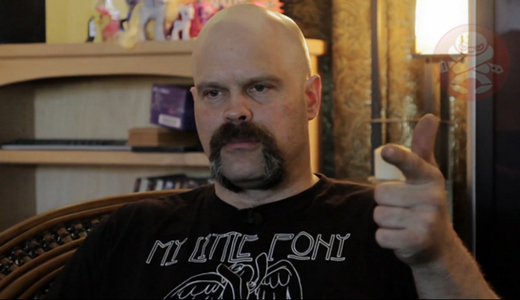Some things in life we know with certainty: The sun will come up tomorrow. Fish will swim in the sea. Kevin Sorbo will star in yet another Christian movie. And when the My Little Pony movie comes to theaters this weekend, standing in the ticket (and popcorn) line will be tens of thousands of adult men.
Now, some of you reading may think I’m pulling your leg about that last one. You’re waiting for the punch line. But there is no punch line. As strange as it may seem (and to me, it seems very, very strange indeed), some of the biggest Pony fans check the “M” box when asked their gender. They range in age from 14 to 57. They call themselves “bronies,” and they join Brony clubs (which boasts 800 members in Santa Monica, Calif., alone), attend Brony conventions, post YouTube videos detailing their fandom and communicate with fellow Bronies in Brony chat rooms, discussing new (and old) Little Pony shows, moral lessons gleaned, and all things MLP.
One of those fans goes by the online moniker Dustykatt. Dustykatt is a self-identified Brony, a term that combines “bro” and “pony” as way to identify guys who like the My Little Pony: Friendship is Magic TV show. In the documentary, A Brony Tale, the muscular Dustykatt, who describes himself as an ex-college football player, diesel mechanic and motorcycle builder, explained his fascination with ponies this way:
“[Men are] supposed to chug beer, ride motorcycles, be degrading to women and like explosions. That’s what is ingrained in our brains from the minute you’re born and put into a blue crib. Well, I like what I like. I don’t need society to tell me what I like.”
Okay, I get that … on some level. Dustykatt wants to make his own choices, doesn’t want to be squeezed into a box that doesn’t represent his interests. But why pastel ponies that the Hasbro company markets to preadolescent girls?
Could it be that Bronies are primarily homosexual men living out some type of fantasy? Nope. According to the research, only 1.7 percent of Bronies describe themselves as homosexual while 84 percent say they’re heterosexual.
Then what is it?
One of the more common reasons guys give for being a Brony is linked to the age-old need to belong. An anonymous Brony said it this way in A Brony Tale: “I think the best part of being a Brony is that, it’s more than a fandom, more than a community, [it’s] like a big family.”
Researcher Dr. Marsha Redden, who along with her team, has collected data on 50,000 Bronies and found that their fandom serves three functions: 1) a sense of guidance, inspiration, purpose, and a sense of uniqueness; 2) a way to share a liked interest; 3) stress relief. Unpacking these a bit further, Redden says that Bronies found their involvement helped them “expand friendship networks” and also “help[ed] support and make moral choices.”
I’m passionate about people making great moral choices. I’m jazzed when people without friends make a buddy or two. But is the way to go? I posed that question to Geremy Keeton, the head of our counseling department here at Focus. I’ll close with his thoughts, questions and insights:
If we could get the affirmation of “manhood” balanced and right as a culture, maybe these outlying extremes wouldn’t have traction. There aren’t many affirming places for men that are ‘different’ than the macho stereotype. Just like Mister Rogers is less celebrated by pop culture than John Elway, he was no less of a man in terms of his value and belonging in the world of men. Value, belonging and drawing together males in community is the deeper instinct or need at play, it would seem. … Rather than ‘shame it,’ maybe it’s worth asking, ‘What’s the deeper issue at play here in this person or in human nature? What good things are they missing that this is filling?’ The answer doesn’t need to lead to Brony affirmation, but it might lead to explanation or compassion.
Your thoughts?






Recent Comments